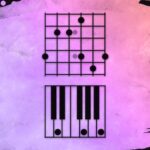Build Your Skills
Learn music theory Train your ears Track your tempoRead Now
Get the Newsletter
Categories
- | BeatMirror (10)
- | HearEQ (11)
- | Waay (22)
- | WaayFinder (1)
- Audio (16)
- For musicians (34)
- Guitar (2)
- Music theory (15)
- News (42)
- Startup stories (2)
- Tutorial (4)
Keep in Touch
About Ten Kettles
We love music, we love learning, and we love building brand new things. We are Ten Kettles.
Read more >-
April 28, 2022
The Two Towers of Skill
There’s a wonderful quote by Will Durant (summarizing Aristotle) that I think sums up practicing music really nicely: “We are what we repeatedly do. Excellence then is not an act, but a habit.” This idea that whatever we do, over and over again, defines us and our playing is spot on.
Take the example of metronome practice (which I recently wrote about). If you practice with a metronome and you listen really keenly to that click, then you’re practicing many foundational skills at once:
- Over and over again, you’re moving swiftly between challenging chords/notes and between far-off positions on your instrument—without losing the beat.
- Over and over again, you’re making those little adjustments to take you from “in the vicinity of the beat” to “on the beat.”
- Over and over again, you’re keeping your ears “open” while you play. You’re learning to really listen while you play, which is perhaps the most important (and rewarding) skill of all—especially if you play with other people.
Every time you practice like that, you change. You become more likely to play that way in future. Your musicianship improves. You are, as Durant summarized, more excellent. Good practice is like adding a brick to your Tower of Skill. You become better every time. Your Tower of Skill grows.
“[Beat Mirror] is a great companion during our rehearsals and I must say it’s pretty accurate.” ⭐️⭐️⭐️⭐️⭐️
–honzakalnik , Mar. 17, 2022But it goes the other way too: If we are what we repeatedly do, then our practice can also tear down that Tower of Skill we’ve built, brick-by-brick. At first, I think this can seem counter-intuitive. If we pick up the guitar every day, we’ll be a better guitarist than if we practice just four times a week, right? Any practice is good practice, right?
No, I don’t think so.
Once we start doing something poorly a few times, something happens. A brick is taken away from our Tower of Skill, and another tower starts to be built. I guess you could call it “the tower of bad habit” but I don’t think that really has the gravity it deserves. Let’s call it the Tower of Anti-Skill.
We can build this Tower of Anti-Skill in many ways:
- Practicing with distractions (e.g., phone buzzing away, TV playing, etc.). If we’re not paying attention, we’re not learning how to focus. And on top of that, we’re building the anti-skill of getting easily distracted.
- Not learning new songs. When you started playing, you were like a sponge, learning any song or warm-up or drill that excited you. But once you learned that stuff, maybe it became unpleasant to feel like a beginner again and learn something new. So every time you choose the old stuff instead of learning something new, you could be building the anti-skill of choosing comfort over growth.
- Never playing with a metronome (or other dependable time keeper). There is a very good chance that without a metronome, your timing can drift. That’s fine if it’s intentional, but 99% of the time it probably isn’t. If you never play against a strict time keeper, you could be building the anti-skills of messy timing, slow transitions, etc. No good!
- Always playing with a metronome. Metronomes are great, but what really matters is what happens when the click turns off (e.g., during a performance). That’s why I built Beat Mirror (here’s a video with some guitar). If you rely on a metronome too much then you can build the anti-skill of metronome dependency (i.e., can’t keep a beat without one) or lack of musical feel. Better to build that inner metronome too!
So, to sum it all up, I can’t think of a more suitable quote for practicing music than “We are what we repeatedly do. Excellence then is not an act, but a habit.” Do the good stuff over and over again and build that Tower of Skill. And if you find yourself repeating the bad stuff, see how you can change course so that your Tower of Skill is always the tallest tower in your musical kingdom.



Comments